
Copyright 2018 by Erik Bork
All rights reserved. No part of this book may be used or reproduced in any manner whatsoever without written permission except in the case of brief quotations embodied in critical articles and reviews.
Overfall Press
4607 Lakeview Canyon Rd 379, Thousand Oaks, CA 91361
www.overfallpress.com
Printed in the United States of America
Cover Design by Domini Dragoone
Cover photo StillFix/123rf
ISBN 978-1-7327530-1-3
e-book ISBN 978-1-7327530-0-6
Library of Congress Control Number: 2018956851
For every writer
who for the first or thousandth time
has tried to come up with
a great story
Table of Contents
Acknowledgments
This book is a product of three decades of studying and working at screenwriting as my primary vocation, including the better part of a decade teaching the craft at institutions like UCLA Extension and National University and as a mentor to hundreds of writers of various levels, around the world. In working with them, I began to codify a body of knowledge, opinion, and advice that led to the principles outlined in this book. And so Im indebted first and foremost to all of those writers who came to me for guidance and feedback and trusted me with their work. Colleagues in my teaching and writing careers have also helped me tremendously, especially Tom Hanks, who gave me my start as a professional writer and employed me on project after project, with all the charm, intelligence, passion, and easygoing generosity you would expect from him. The amazing producer Tony To helped me make good on those opportunities on the miniseries Band of Brothers and From the Earth to the Moon , the projects for which I am still best known. I also have to thank Brett Loncar, my longtime television packaging agent at CAA, who was a key figure in helping me to understand what makes a viable premise in TVmostly by shooting down so many that werent, but also by advocating passionately for those that were. Finally my wife, Margaret, an immensely talented singer, songwriter, and creator of musicals, has supported me and been my biggest cheerleader as I develop my own projects and help others to do the same.
INTRODUCTION
It seems like things should be getting easier for writers.
There are more resources than ever to finish a book, a web series, or even an independent film and put it in front of people. In this age of self-publishing, digital video, and social media, almost any of us can create and share our work without having to impress powerful gatekeepers.
But if we want to reach a large audience beyond personal contacts and online followersand actually make money with itthats another story. Getting lots of people to pay to watch or read what we writeand turning it into a professionis still elusive for almost everyone.
Things really havent changed much since the old days, when we needed agents, publishers, producers, and big companies behind our work for it to ever have a chance at reaching a mass audience. Even today, the overwhelming majority of successful movies, TV series, books, and plays still go through these traditional systems.
And unfortunately, its no easier to impress those gatekeepers than it ever was. Thats the sad truth we writers grapple with whenever we finish something and send it out into the world. We usually dont get back the love that we were hoping for.
Why not? What are those people looking for? Why is it so hard???
The answer is actually pretty simple. These elusive conduits to a potential audience and career respond to the same things audiences do: a great idea thats well executedone that grabs them emotionally, holds their attention, and powerfully entertains them.
But most of the time, they dont get that. Its not even close, in their minds. Theyre severely underwhelmed by more than 99 percent of what they receive. So they move on to the next submissionas quickly as possible. And the writer is sent either a bland rejection or no response at all.
As a result of this frustrating processand the difficulty of getting true engagement from anyone who could move ones work forwardwe often assume the real problem is that the doors are too closed and the decision makers too hard to reach. If only we could get our work into the right hands! Then wed have a shot!
But what Ive learned in my years as a professional screenwriterand in mentoring others who want to become oneis that reaching the right people is really not the hard part of succeeding as a writer.
The hard part is creating something that the right people would be excited by if they read it.
And thats what most of us never quite achieve.
Why not? Where is the disconnect between the excited writer who thinks theyre onto something and the industry that disagrees? What turns these tastemakers off and makes them stop reading or decide to pass?
Part of it is an obvious lack of professional-level execution in the writing, which seasoned readers can pick up on pretty quickly. And just a few pages of that convinces them that the rest of the work probably isnt worth their time. Because it almost never gets better from there.
But believe it or not, thats not the main issue most of the time. What usually sinks a project, instead, lies in the basic idea for the storywhat we might communicate in a logline of a sentence or two, or a brief synopsis in a query letter, or a quick verbal pitch.
Most of the time, it all ends right there. The reader is not intrigued enough by the idea. They dont see potential. They dont need to read the whole piece to make their decision. They know that the core idea is the most essential, foundational element in making a project viable in the marketplace. And most ideas they see (and scripts or manuscripts they read) lack a central idea that they think really works.
This idea is the core premise or concept of the story, which basically comes down to the answers to the following five questions:
Whose story is it, and why should we identify with them?
What do they want, in their life circumstances and relationships?
Whats in the way of them achieving that?
What are they doing to try to resolve this? What makes it so hard?
Why does it matter deeplyto them, and hopefully, to us?
This is a storys basic DNA. And a readers interest in a piece of material (or lack thereof) tends to stem directly from the answers to these questions.
How I Arrived at This
It took me a while to figure this out.
When I moved to Los Angeles from Ohio after college to try to become a professional screenwriterand started working as an office assistant at 20th Century Fox studiosthe screenplays I was writing, in my free time, did not meet the criteria laid out in this book. Nor was I even aware of these criteria. I was merely trying to emulate what I thought were the key elements of movies I lovedwithout understanding them on a deeper level. I obsessed about story structure and scene writing (like most writers), but I didnt really know how ideas worked. I didnt realize this was something I needed to study, nor did I know how to study it.
Thats because most books on screenwritingthen and nowdont spend a lot of time on just the idea. There is so much to say about story structure, character, and the writing process itself (not to mention navigating the business) that picking what to write in the first place often gets short shrift. And writers often give it short shrift, too.
I had a vague understanding that the biggest Hollywood screenplay sales were mostly high-concept ideas, but these were usually in action or fantasy genres that didnt strongly appeal to me. So I wrote my low-concept comedy/dramas inspired by real life. They might have been decently executed. But they went nowhere.
Next page
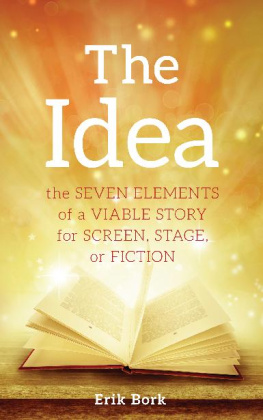
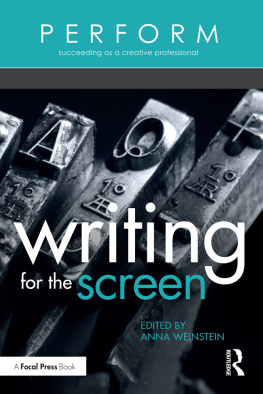
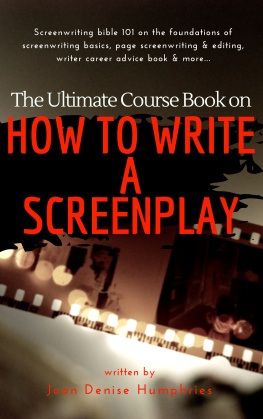
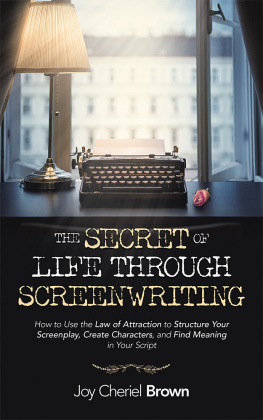

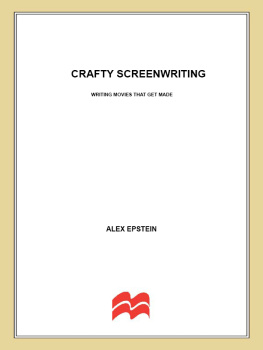
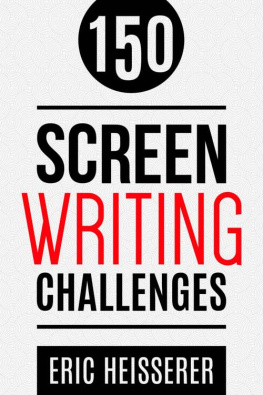
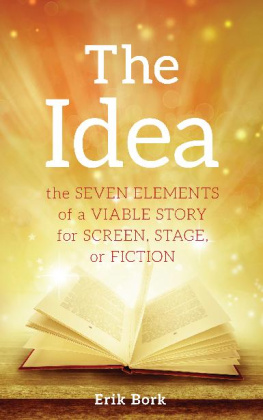
![Watt - The 90-day screenplay : [from concept to polish]](/uploads/posts/book/103527/thumbs/watt-the-90-day-screenplay-from-concept-to.jpg)
